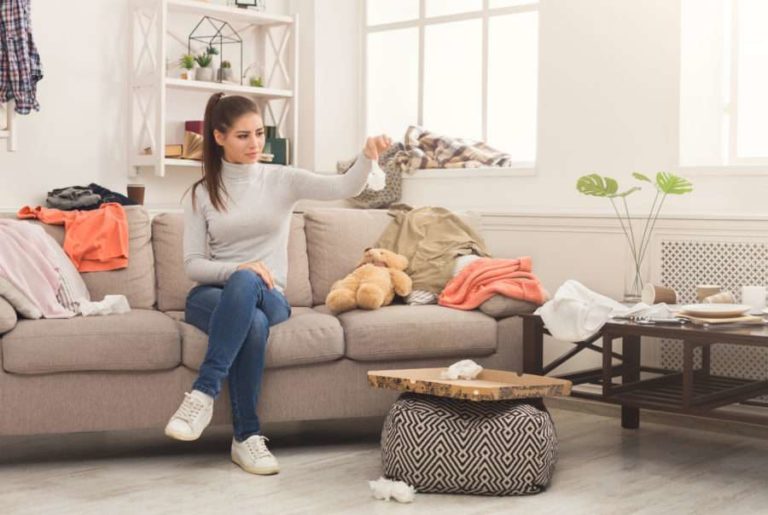After a long day at work, you settle in to watch a bit of TV or read a book. This is the one hour of the day where you have absolutely nothing to do—except relax and wind down.
But then, just as you pick up the remote, you glance at the pile of paperwork on the table. Or maybe you see that the drawer on your end table won’t quite close because it’s packed too tight with playing cards, batteries, and who knows what else. It could be you wander into your closet to change and are surrounded by clothes you never wear and shoes you don’t like all that much, but bought because they were a good deal.
Slowly, steadily, and insidiously, the stress begins to creep in, whether you consciously notice it or not. Chances are, you’ll go back to watching TV or reading that book, but all of that stuff will still be there—in your home and in the back of your head—just waiting to be dealt with.
Is that an exaggeration? Not according to science, which is pretty clear on the fact that excess stuff leads to excess stress.
What Research Says on Clutter and Anxiety
Multiple studies examine the link between anxiety and clutter. Let’s take a look at a few of them:
• Want to lose weight and get healthier? A 2016 Cornell University study placed 101 female college students either in clean or cluttered kitchen conditions. The students were then also asked to think and write about a time when they felt particularly in control or particularly out of control. Finally, they were given cookies, crackers, or carrots to taste and rate.
Participants who were in the out-of-control kitchen and also asked to recall an out-of-control time ate more cookies than the other participants (but not more carrots or crackers). The take-home? If your home environment is chaotic, you’re more likely to make unhealthy choices—unless you’re able to counter your surroundings with a calm and strong mindset.
• Feeling worn out? Researchers at Princeton University found in 2011 that clutter actually tires our brains out, making it difficult for us to focus and concentrate on other things. They phrase it like this:
Multiple stimuli present in the visual field at the same time compete for neural representation by mutually suppressing their evoked activity throughout visual cortex, providing a neural correlate for the limited processing capacity of the visual system.
Whew, that’s a mouthful. But what it really means is clear: Clutter competes for attention with whatever it is that we really want to be doing – like reading a book to your toddler, talking to your spouse, or even enjoying preparing a nice meal.
• Want to know what really stresses moms out? It’s that time of day when all the kids come home with their backpacks, jackets, lunch bags, permission forms, and crafts—and put none of it away properly. That’s according to a UCLA study that observed 32 families in the Los Angeles area. It found that all of the mothers’ stress hormones spiked during the time of day when they had to deal with clutter.
A UCLA Magazine story on the study reported that moms simply didn’t have enough time to sort, organize, and manage all of the stuff in their homes. Perhaps more alarming, the article pointed out that, amongst study participants, cars had been banished from 75 percent of garages to make room for storage.
How to Beat Clutter
Although we’re in the storage business, we’ll be the first to tell you that the answer to your clutter is not simply renting a storage unit.
A true de-cluttering starts with a change in mindset. Before you buy that new toy for your child or new sweater for your spouse, pause and think if your family really needs it. We know that shopping results in a quick surge of feel-good chemicals, but is it worth it?
The next step is to take an honest assessment of what you have. De-cluttering is a popular topic right now (think Marie Kondo and her magical tidying up) and a quick online search will result in dozens of different methods for doing exactly that.
But what it takes, really, is not so much a new method of de-cluttering as it does a new commitment to actually doing so. At its core, de-cluttering is super simple: You give or throw away stuff you don’t use.
Still need help? Here are three methods of decluttering your home. Here’s how to de-clutter your dining area. And here’s how to let go of stuff in your house without guilt.
Clutter Anxiety and StorageMart
If you’ve made an honest attempt to de-clutter your home and find that you’re still drowning in stuff, then you may have a space issue, not a clutter issue. At StorageMart, we offer well-lit and affordable self storage units that can be rented on a month-by-month basis. Check out our storage unit guide to find the size that’s right for you, or contact us to rent a unit online today.


